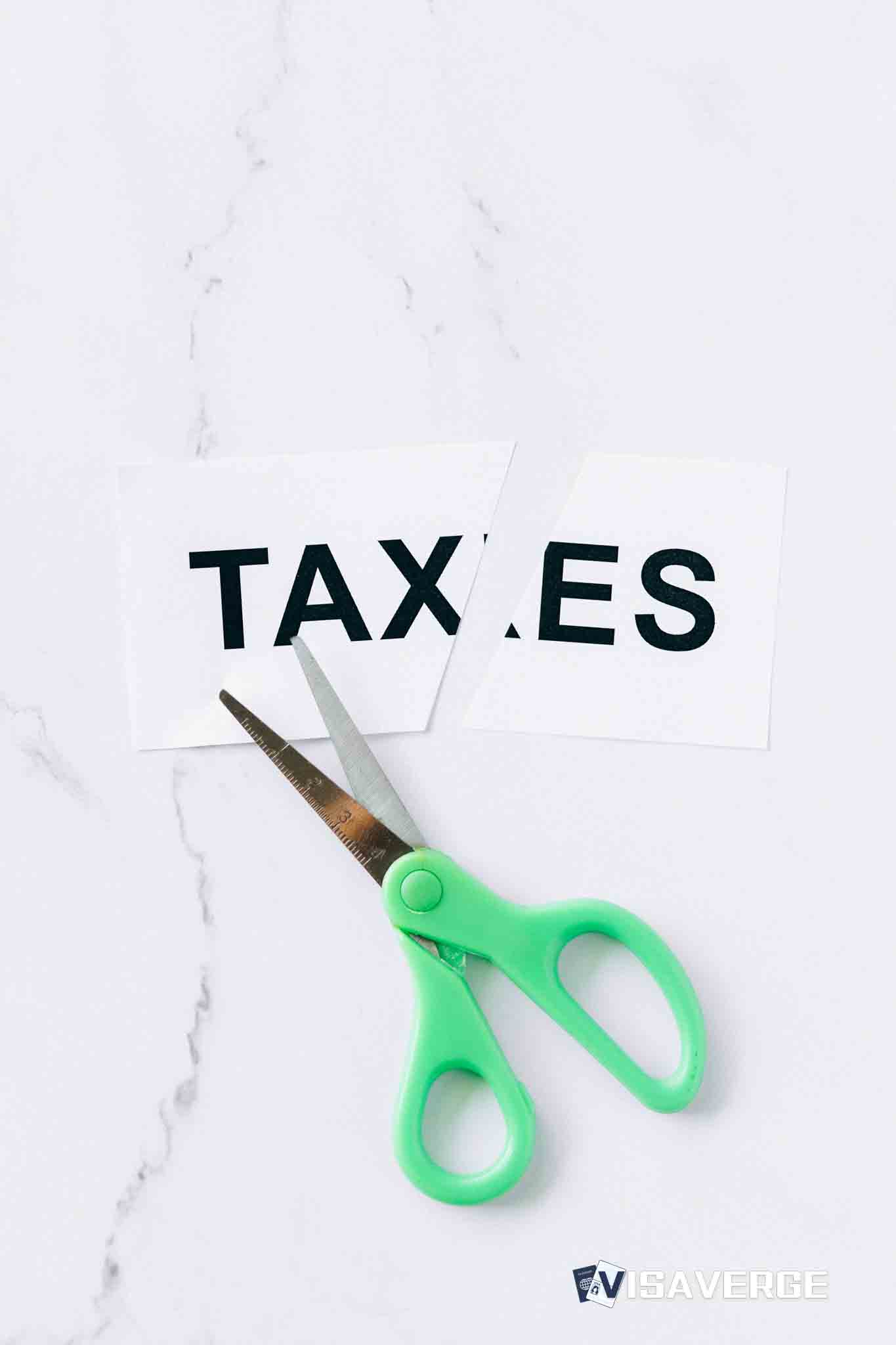(SPAIN) European governments are rapidly closing doors on property-based Golden Visa schemes, with Spain and Malta among the latest to retreat from programs that once drew billions in real estate investment, even as demand from Asian investors stays strong and shifts to the few remaining options in Europe and to new long-term residence offers in Asia and Central Asia.
Major policy shift: Spain ends property route

The shift accelerated on 3 April 2025, when the Spanish government formally ended its real estate track for investor residence permits. This closed a route that had allowed non‑EU nationals to secure residency by purchasing property worth at least €500,000.
Officials framed the move as a response to housing shortages and rising prices in key cities, arguing that speculative foreign buying was pushing local families out of the market.
Wider European retreat and legal pressure
Spain’s decision follows a broader European turn away from selling residency and citizenship through bricks‑and‑mortar investment. Malta has already wound down its so‑called Golden Passport model after an EU court ruling questioned the compatibility of citizenship‑for‑sale schemes with European law, adding legal and political risk for governments that continue to trade residence rights for property deals.
Portugal moved earlier than Spain, stripping real estate and simple capital‑transfer options from its Golden Visa in 2023. Investors there now face a very different path:
- Most must invest at least €500,000 into venture capital or private equity funds approved by authorities.
- They must wait 10 years before applying for citizenship — double the previous minimum for many applicants, although some EU and CPLP nationals retain a shorter seven‑year timeline.
Ongoing demand from Asia
Despite Western European closures, demand from Asia continues to flow in. Analysis by VisaVerge.com finds that Chinese nationals remain especially active, pursuing residence rights that:
- Allow easier travel to the Schengen Area
- Provide access to European schools
- Serve as a back‑up against political or economic uncertainty at home
Many applicants have redirected their attention to other programs rather than abandoning the idea of investor migration.
Europe is shifting toward productive investments. Even with property limits, entrepreneurs who create jobs or bring tech can still qualify for residence under new criteria.
Winners from the reshuffle: Greece and Hungary
Greece
– Still offers a Golden Visa tied to property, but has raised minimum investment levels in popular areas.
– Developers are redesigning projects around higher‑value units.
– Greek authorities received 9,289 applications in 2024 alone.
– Chinese citizens topped the list of successful applicants.
Hungary
– Previously scrapped its residence‑through‑investment offer in 2017 amid corruption concerns.
– Re‑entered the market with a redesigned program launched in 2024.
– The new scheme grants long‑term residence to foreigners who place at least €250,000 into approved real estate funds.
– The lower threshold is attracting cost‑sensitive investors from China, Vietnam, and parts of the Middle East.
Spain’s broader investor picture
Although Spain closed its real estate route, the country still issued roughly 3,500 residence permits to Chinese nationals in 2023 under other categories, including visas for entrepreneurs. Officials say that around 95% of those investors chose to put money into property before this year’s reform — highlighting how Asia‑driven wealth was tightly linked to bricks and mortar in Spain’s coastal cities and business hubs.
The ministry overseeing investor residence permits made the case for redirecting capital:
- Spain’s Ministry of Inclusion, Social Security and Migration (which manages permits through its official migration portal) argues foreign capital should now target productive sectors rather than holiday apartments.
- It says the end of property‑based residence will not stop genuine entrepreneurs, who can still apply if they create jobs or bring new technology.
- The ministry concedes that speculative buying by absentee landlords will slow.
Criticisms and defenses of Golden Visa programs
Critics say Golden Visa and passport programs have:
- Distorted housing markets from Barcelona to Valletta
- Offered few benefits to local communities
- Opened doors to money‑laundering and asset flight by politically connected elites from authoritarian states
Supporters counter that many investors:
- Pay taxes
- Support construction jobs
- Spend heavily as consumers
Anti‑corruption campaigners in Brussels continue to press for tougher standards and oversight.
Key takeaway: Selling residency or citizenship for property has become politically and legally contested in Europe, prompting a shift toward programs that emphasize economic productivity, transparency, and security checks.
Moves beyond Europe: Asia, Central Asia, and the US
Asia
– Some countries in Asia are designing or expanding long‑stay investor visas aimed at retirees and entrepreneurs.
– Examples include Thailand and Vietnam, which tend to set lower investment thresholds than Europe and focus on local businesses, government bonds, or mixed developments rather than luxury second homes.
Kazakhstan
– In May 2025, Kazakhstan unveiled a 10‑year Golden Visa requiring at least US$300,000 invested in local companies or securities.
– It positions itself as a bridge between Europe and China, with growing financial centres in Almaty and Astana.
– Consultants highlight Kazakhstan’s relative stability, low living costs, and appeal for geographic and currency diversification.
United States
– The United States 🇺🇸 rolled out a new so‑called Gold Card visa replacing the older EB‑5 category.
– It requires a US$5 million investment.
– Lawyers say this higher price targets ultra‑high‑net‑worth individuals rather than middle‑class families pooling resources, and may reduce application numbers while remaining attractive to billionaires seeking a foothold in the US.
Industry response and program redesigns
Industry professionals describe the changes as an evolution, not an end, to investor migration:
- New and redesigned programs increasingly demand investments that support innovation, job creation, or sustainability rather than purchases of empty luxury blocks.
- Developers and fund managers are creating vehicles that promise residence rights plus support for:
- Technology start‑ups
- Green energy projects
- Social housing initiatives
How families are adapting
Families in Beijing, Shanghai, and Ho Chi Minh City face complex choices:
- Some still prefer a property‑linked Golden Visa as a tangible asset they can rent out or pass on.
- Others opt for fund investments, which may offer higher returns but carry more financial risk and provide less direct personal use.
- Many households now split their capital, for example:
- Part into Greek or Hungarian property
- Part into Portuguese funds or Asian programs offering long‑term stay rights
Immigration lawyers report that decisions now hinge on each family’s risk appetite, travel needs, and plans for children’s education.
Check current investment thresholds and eligible vehicles (e.g., Hungary funds, Kazakhstan programs). Gather source-of-funds documentation and book a lawyer consult before choosing a program.
Current landscape and outlook
Despite backlash, many European governments are reluctant to end investor visas completely, mindful that rivals in Asia and the Middle East are eager to welcome capital. Officials increasingly speak of:
- Seeking “better quality” investment
- Implementing tighter due‑diligence checks
- Strengthening monitoring of money origins
Brussels continues to pressure EU members to align with common standards, especially after legal battles over programs such as Malta’s abandoned passport scheme.
A summary table of key program changes and thresholds
| Country | Program status (by 2025) | Typical minimum investment | Notable features |
|---|---|---|---|
| Spain | Ended real estate route (3 Apr 2025) | €500,000 (route closed) | Redirect to productive investments; 3,500 Chinese permits in 2023 under other categories |
| Malta | Wound down passport model | N/A (scheme ended) | EU court scrutiny; program abandoned |
| Portugal | Real estate removed (2023) | €500,000 (funds/VC required) | 10‑year wait for citizenship (7 years for some nationals) |
| Greece | Continues property Golden Visa | Raised minimums in popular areas | 9,289 applications in 2024; strong Chinese participation |
| Hungary | Launched new fund scheme (2024) | €250,000 into approved real estate funds | Attracting cost‑sensitive investors |
| Kazakhstan | New 10‑year Golden Visa (May 2025) | US$300,000 into companies/securities | Positioning as bridge between Europe and China |
| United States | New Gold Card (replaces EB‑5) | US$5,000,000 | Targets ultra‑high‑net‑worth individuals |
For now, the global map of investor migration is more fragmented than in the past decade. Families who once chose between Spain, Malta, and Portugal now weigh Greek property, Hungarian funds, a Kazakh Golden Visa, or the American Gold Card. As choices multiply, the process becomes ever more bespoke and dependent on individual priorities.
Investors, however, show little sign of losing interest worldwide.
Europe is retracting property‑based Golden Visa schemes: Spain ended its €500,000 real‑estate route on April 3, 2025, and Malta wound down passport sales after EU scrutiny. Portugal replaced property options with €500,000 fund investments and longer citizenship waits. Demand from Asian investors remains strong and is redirecting to Greece, Hungary, Kazakhstan, and redesigned fund or innovation‑focused programs. Governments emphasize job creation, transparency, and stricter due diligence over speculative property buying.








